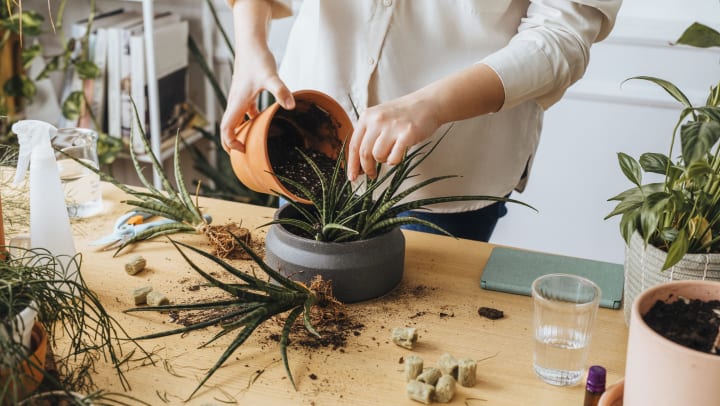Now’s the time to start getting your fall crops potted and ready to grow. Seeds and seedlings aside, one thing you’re going to need is nutrient-rich soil. If you lived in the country, you would likely pull that soil from your outdoor compost pile. But just because you live in an apartment or townhome doesn’t mean you can’t produce your own compost to mix with your store-bought soil. You already have the food scraps, all you need is a little ingenuity and you can put them to work growing more fresh food!
Here’s how to create your own compost in your townhome or apartment, no matter its size.
Envirocycle Mini Composter
This 17-gallon barrel composter fits comfortably on your balcony or patio and produces fresh, rich compost in 4 to 8 weeks. Simply add fruit and vegetable scraps, along with cardboard, coffee filters, egg cartons, and toilet paper rolls, in a ratio of 75% scraps to 25% paper products and turn the composter three times, every three days, and you're on your way! Envirocycle recommends collecting and storing your kitchen scraps and paper products in separate containers between visits to the composter.
Bokashi Bins
Bokashi composting uses a one- or two-bin system to ferment and compost all your food scraps – it even works with stuff like meat, which is typically difficult to compost and can cause unpleasant odors in other systems. The key to Bokashi composting is their bran mixture, which is packed with microbes that set to work fermenting your food scraps. Their website seems to imply that it’s possible to compost with just one of their bins, but they strongly suggest you use two for best results. It’s also recommended that you store your bin indoors.
Vitamix FoodCycler
That’s right, Vitmamix – maker of the most expensive blender that you just have to have – also makes a really expensive home composter! One cubic foot in size, this handsome kitchen gadget sits comfortably on your kitchen counter and swallows (almost) all your leftovers. Dump fruit and vegetable scraps, meat, fish, and poultry scraps along with small bones, beans, cheese, eggshells, and coffee grounds. There is also a long list of foods that are sometimes acceptable, presumably depending on how much has already been added? It doesn’t say. The FoodCycler works by grinding it all down into food dust that you can mix into your store-bought soil. Basically, it’s a Vitamix for garbage. Not exactly game-changing, but an option nonetheless.
Worms
Yep, worms! You can buy a special worm bin or just make your own with a lidded plastic tote and an electric drill. Then buy some worms and throw them in there. This option doesn’t convert very much kitchen waste, it’s dirty, and it takes a long time, so it might not be ideal, but it’s still an option worth mentioning. Check out this guide from Mother Jones for the full lowdown.
For more tips on slaying your own home garden, check out the Olympus at the District blog.


